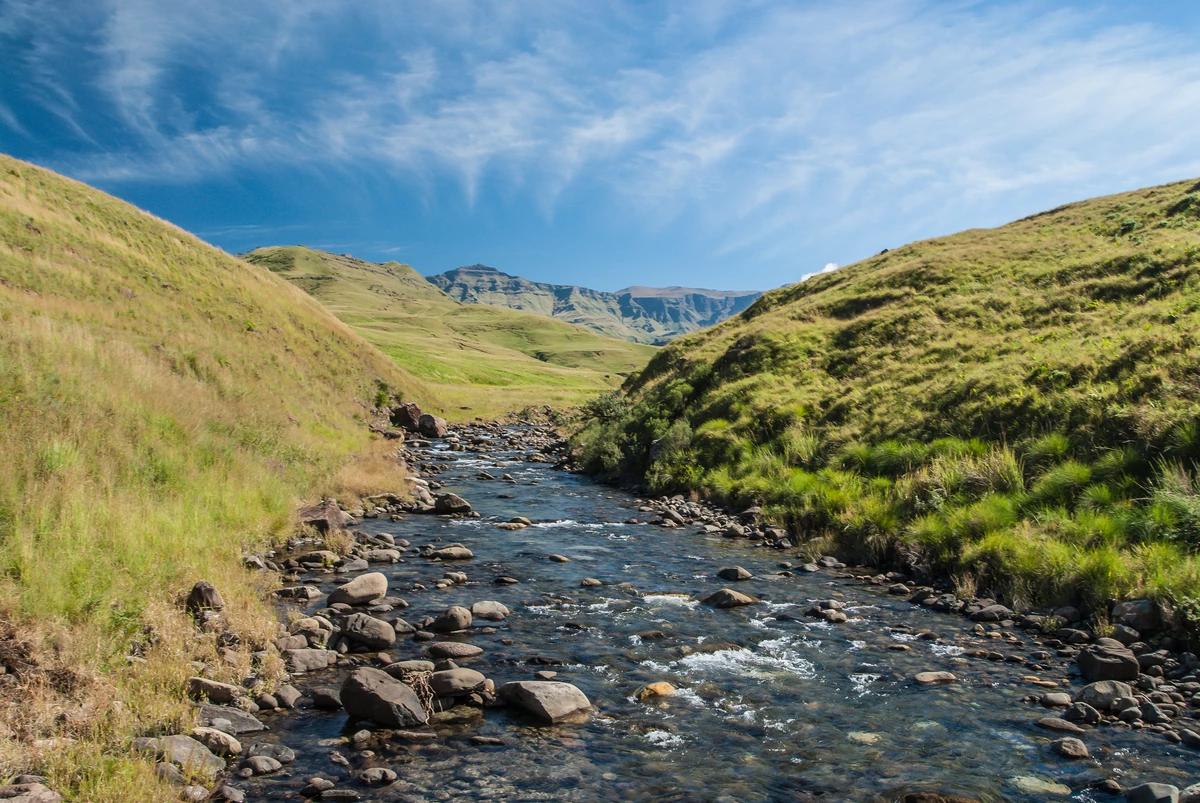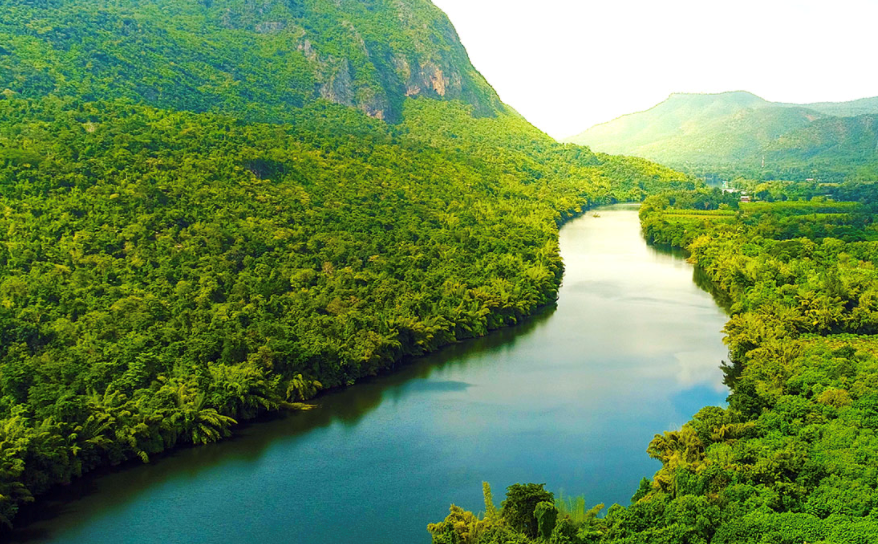Building a bankable nature-based solution from scratch in the Southern Drakensberg
WWF has been working for years with local stakeholders in the Southern Drakensberg to protect one of the country’s essential water-supplying landscapes. Our colleagues of the DFCD and WWF South Africa are now in the first design stage of developing a bankable project in the region to safeguard this crucial water source area and protect local livelihoods as the climate is changing.
It wouldn’t be a bankable project if there weren’t private partners involved. So the other key partner in the project design is Danone, the global dairy company known for its focus on promoting regenerative models of agriculture that protect soils, empower farmers and promote animal welfare. The Southern Drakensberg region is known for its fertile soils, open grasslands and dairy and crop farming.
“Together we are building a bankable model in which the large commercial dairy farms in the area (and eventually the smallholders too) are incentivized to adapt to regenerative farming practices that save water and improve the soil and grass”, says Marcel Dupuis, senior finance and fund advisor of the DFCD. “An improved soil health leads to more carbon sequestration and also to better milk!”
Water availability and the growing threat of scarcity is not only important to the farmers. It is one of the most decisive factors for the economic, social and environmental well-being of the entire country. Still, right now water is charged too cheaply or provided for free, so how do you convince farmers to save water and introduce climate-smart agricultural practices?
Another threat is water-thirsty invasive alien plants, which will also be addressed within the overall Water Source Partnership for the Southern Drakensberg. This is the community-public-private partnership being forged by WWF South Africa and bringing together the various stakeholders in the landscape to safeguard the Strategic Water Source Area secure safe and long-term water for the different users: commercial, small-scale farmers and local communities.
First stage of the project development
Designing a sustainable bankable model for the commercial dairy farms is a cornerstone for the overall landscape approach for this region and the first step. Addressing the needs of the emerging or small-scale farmers and the removal of water-thirsty invasive species follow in stage two of the project.
In April, DFCD and WWF South Africa sign the contracts to hire the right consultants to work on:
- A pre-feasibility study to work out the rough business case for farmers to borrow money to invest in climate-smart measures, such as solar water pumps, flow meters and soil moisture probes. Such investments should lead to lower costs - energy costs to pump surface water and to cool milk - are the highest costs after labour. This will be the most important driver for bankability. Overall risks of water scarcity and the impact of adverse weather on the farms’ should reduce farmers’ operational risks and the overall resilience and sustainability of their operations. Farmers should be rewarded for higher-quality milk in combination with a more sustainable environmental footprint, while the reduced risks should make it less risky for banks to lend money to these farmers.
- A Track & Save monitoring system for the farms to monitor the environmental impact and a baseline study.
There will be a pilot with 9 to 11 farms which have typically 140 to 180 hectares. In total there are 180 to 200 commercial dairy farms. Danone buys from farms in the region, and other large multinationals like Nestle source their milk from the area.
The role of the DFCD
South African banks tend to be very prudent to lend to farmers because of their risk profile. Agricultural risk in general is deemed high and is now even compounded by the worries over climate change - severe climate events and droughts. To lower the risks for local banks to finance such a transformative approach introducing regenerative agricultural practices, DFCD is seeking to provide capital to an interested local bank(s) to de-risk the loans to farmers and incentivize the transitions towards regenerative agriculture practices. This way, the DFCD is making the project bankable for otherwise reluctant banks.
After a pilot phase with around ten farms, activities are expected to be scaled up in two to three years to approximately 75 farms requiring an estimated funding of € 12 million for a five-year period. The activities will also be potentially replicable in the Northern Drakensberg landscape and beyond.
The activities will also be potentially replicable in other source areas and further to all dairy farming areas in South Africa.
About DFCD
The Dutch Fund for Climate and Development (DFCD) is a climate fund, dedicated to supporting climate adaptation and mitigation projects which benefit vulnerable communities and landscapes. Initially funded by the Dutch government, it is powered by a consortium of four expert organisations: FMO (Dutch Entrepreneurial Development Bank), CFM (Climate Fund Managers), SNV, a global development partner, and WWF Netherlands.

